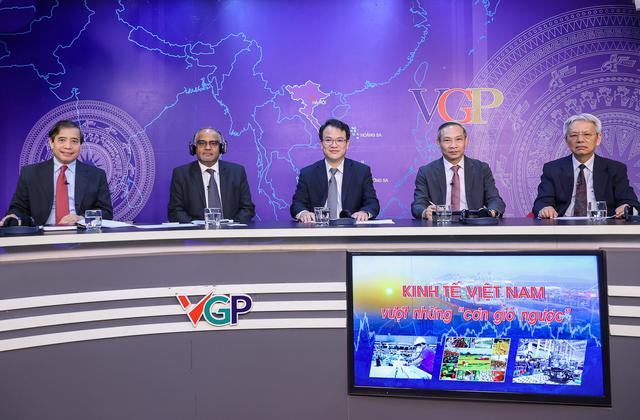During a talk with the theme “Vietnam’s economy overcoming the headwinds”, held at the headquarters of the Vietnam Government Portal (VGP) on October 5, and while assessing the government’s leadership and governance of socio-economic development over recent months, Country Director of the Asian Development Bank (ADB) for Vietnam, Mr. Shantanu Chakraborty, said the government’s proactive policy responses are conducive to macro-economic stabilization and socio-economic development, according to a report from VGP.
Mr. Chakraborty noted that ADB’s recent projection from September indicated that Vietnam would still lead growth in Southeast Asia, at 5.8 per cent in 2023 and 6 per cent in 2024.
Data for the third quarter of 2023 from the General Statistics Office of Vietnam showed GDP growth of 5.33 per cent, bringing the nine-month rate to 4.24 per cent year-on-year.
In terms of macro-economic policies involving fiscal and monetary measures, the government has moved in the right direction and in a timely fashion, he noted.
Strong domestic consumption, supported by moderating inflation, lifted the service sector growth by 6.3 per cent and contributed 2.9 percentage points to the total of 4.3 per cent growth over the first nine months of 2023.
According to Mr. Chakraborty, while Vietnam’s economy has shown resilience in the context of global economic uncertainty, near-term prospects through 2024 and beyond are still facing heightened risks from the external environment.
In this context, it is crucial that policymakers stay vigilant and make timely responses, while efforts are needed to boost the domestic economy both through short-term support measures and longer-term reforms, he suggested.
Fiscal stimulus measures should be prioritized because Vietnam still has fiscal space. Public debt is well controlled at around 38 per cent of GDP as of the end of 2022, he added.
Vietnam should accelerate the disbursement of a sizable public investment, around $30 billion. This will directly support contracting industries such as construction and mining, and provide more employment opportunities, the ADB Country Director recommended, adding that the 2 per cent VAT cut should be implemented until the end of 2024 instead of only six months in 2023.
Monetary policy has also been accommodative, with four rounds of policy rate reductions in attempts to reduce borrowing costs for businesses, while exchange rates have also been flexibly managed at stable level.
Coordinated policy can effectively support economic recovery, considering relative price stability and weak demand.
In the near term, monetary policy should be accommodative and fiscal policy expansionary. Slow credit growth indicates that monetary policy loosening must be closely coordinated with fiscal policy implementation to effectively boost economic activities.
For long-term sustainable development, the government should double down on reform efforts to improve the business environment, especially in the context of green transitioning, addressing climate change and private sector development, and building on continuous strength in FDI attraction.









 Google translate
Google translate